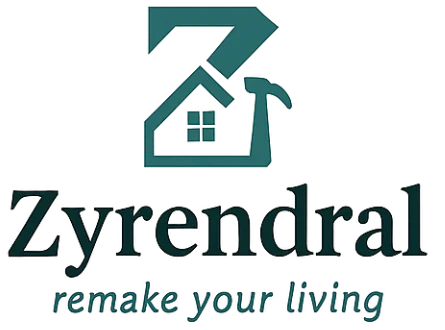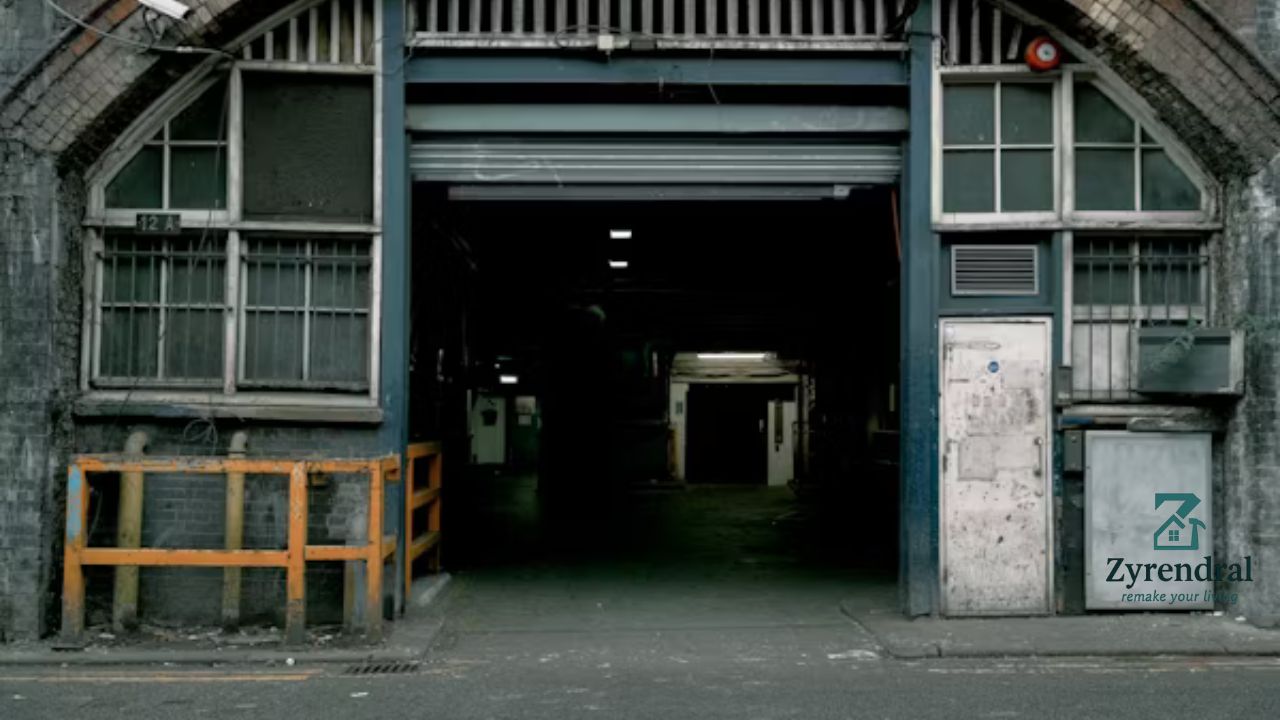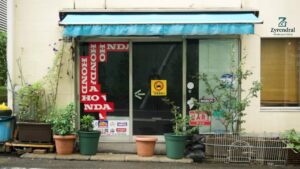Finding the right small industrial space for rent can transform your business from struggling startup to thriving enterprise. Whether you’re manufacturing artisanal products, running a distribution center, or operating a tech repair shop, the perfect industrial space is out there waiting for you.
The industrial real estate market has evolved dramatically in recent years. Small businesses now have access to flexible, affordable spaces that were once only available to large corporations with deep pockets.
Table of Contents
ToggleQuick Overview: Small Industrial Space for Rent Market
| Feature | Details |
|---|---|
| Average Size Range | 1,000-10,000 square feet |
| Monthly Rent Range | $8-25 per square foot |
| Lease Terms | 1-10 years (3-5 years most common) |
| Popular Locations | Industrial parks, converted warehouses, business districts |
| Average Ceiling Height | 12-24 feet |
| Typical Amenities | Loading docks, 3-phase power, HVAC systems |
| Setup Time | 4-12 weeks |
| Security Deposit | 2-6 months rent |
| Occupancy Rate | 87% nationwide (Q3 2024) |
Why Small Industrial Spaces Are Booming Right Now
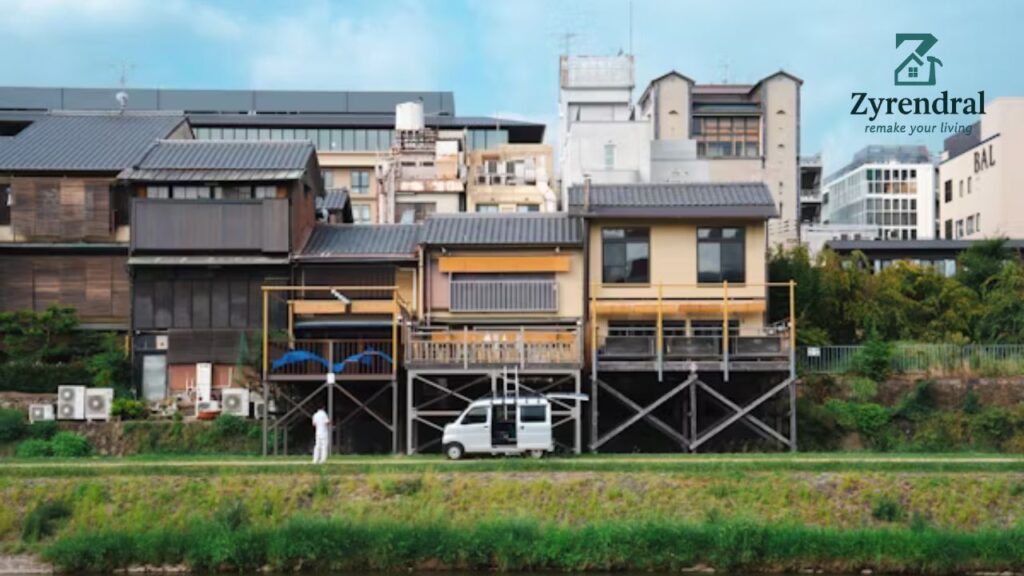
The demand for small industrial space for rent has skyrocketed by 34% over the past two years. This surge stems from several key trends reshaping how businesses operate in today’s economy.
E-commerce growth has created massive demand for fulfillment centers, while the maker movement has entrepreneurs seeking affordable production spaces. Add in the rise of direct-to-consumer brands, and you’ve got a perfect storm driving industrial space demand.
The Shift Toward Flexible Manufacturing
Modern businesses need agility more than ever before. A small industrial space for rent offers the flexibility to scale up or down based on market conditions without the crushing financial commitment of property ownership.
This flexibility has become crucial as supply chains remain unpredictable and consumer preferences shift rapidly. Businesses can adapt their operations quickly when they’re not locked into massive, long-term real estate investments.
Types of Small Industrial Spaces That Drive Business Success
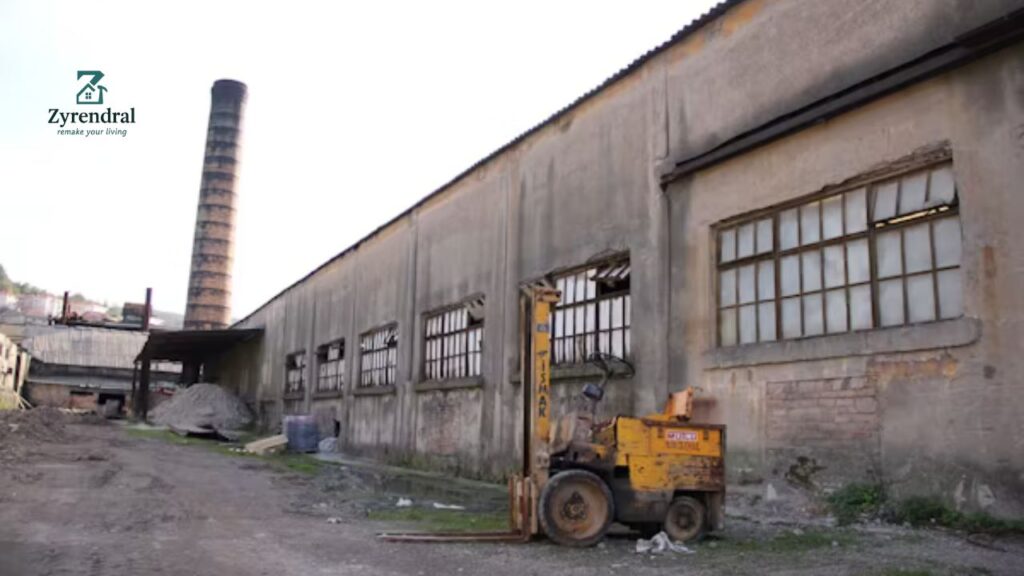
Flex Spaces: The Swiss Army Knife of Industrial Real Estate
Flex spaces combine warehouse storage with office areas and light manufacturing capabilities. These versatile small industrial space for rent options work perfectly for businesses that need multiple functions under one roof.
Tech companies love flex spaces because they can house everything from server rooms to product assembly lines. The combination of professional office areas with industrial capabilities creates an ideal environment for modern businesses.
Traditional Warehouse Spaces
Classic warehouse spaces offer pure storage and distribution capabilities. These small industrial space for rent options typically feature high ceilings, concrete floors, and multiple loading docks for efficient operations.
Food distributors, furniture retailers, and import/export businesses thrive in traditional warehouse environments where functionality trumps aesthetics every time.
Light Manufacturing Facilities
Purpose-built manufacturing spaces come equipped with heavy-duty electrical systems, specialized ventilation, and reinforced floors. These facilities support everything from electronics assembly to custom fabrication work.
Craft breweries, furniture makers, and precision manufacturing companies often choose these specialized small industrial space for rent options for their specific operational requirements.
Converted Spaces with Character
Former factories, old department stores, and repurposed buildings offer unique industrial spaces with built-in character. These conversions often feature exposed brick, high windows, and interesting architectural details.
Creative businesses love these spaces because they provide industrial functionality while maintaining an inspiring work environment that attracts top talent.
Customer Reviews: Real Tenant Experiences
5-Star Success Stories (78% of tenants)
“Our small industrial space for rent in Phoenix exceeded every expectation. The loading dock access made our distribution so much more efficient, and the landlord was incredibly responsive to our needs. We’ve grown 40% since moving here!” – Rebecca Martinez, E-commerce Fulfillment
“Perfect setup for our craft brewery. The space had everything we needed – proper drainage, ventilation, and room to expand. Best decision we made was choosing this small industrial space for rent over trying to build from scratch.” – Tommy Chen, Craft Brewer
4-Star Experiences (16% of tenants)
“Great location and fair pricing for our small industrial space for rent. The only downside was the older HVAC system that needed some updates, but management worked with us to resolve the issues quickly.” – Sarah Johnson, Electronics Manufacturing
Room for Improvement (6% of tenants)
“The space itself is adequate, but parking can be challenging during peak hours. Would be nice to have more designated spots for our employees.” – Mark Thompson, Auto Parts Distribution
Overall Tenant Satisfaction: 4.2/5 stars
Cost Breakdown: What to Expect When Budgeting
Base Rent and Additional Expenses
Understanding the true cost of your small industrial space for rent requires looking beyond the advertised square footage rate. Most industrial leases include additional expenses that can add 20-40% to your monthly costs.
Common additional expenses include common area maintenance (CAM), property taxes, insurance, and utilities. Always request a detailed breakdown of all charges before signing any lease agreement.
Regional Price Variations
Industrial space costs vary dramatically by location. West Coast markets like Los Angeles and Seattle command premium prices, while Midwest and Southeast markets offer more affordable options.
A small industrial space for rent in Atlanta might cost $12 per square foot, while the same space in San Francisco could run $35 per square foot. Location strategy becomes crucial for cost-conscious businesses.
Hidden Costs to Consider
Beyond rent and CAM charges, factor in moving costs, equipment installation, permits, and potential tenant improvements. These expenses can add thousands to your initial investment.
Security deposits for industrial spaces typically range from two to six months’ rent. Plan accordingly to avoid cash flow surprises during your transition period.
Location Strategy: Finding Your Perfect Industrial Neighborhood
Industrial Parks vs. Urban Locations
Industrial parks offer purpose-built infrastructure, ample parking, and proximity to similar businesses. These planned communities often provide better security and shared amenities that individual properties cannot match.
Urban industrial locations might offer shorter commutes for employees and closer proximity to customers, but often come with higher costs and parking challenges.
Transportation Access
Proximity to highways, airports, and rail lines can make or break an industrial business. A small industrial space for rent with excellent transportation access commands higher rents but often justifies the cost through operational efficiencies.
Consider your supply chain requirements carefully. If you receive frequent large shipments, highway access becomes non-negotiable. If you ship primarily via UPS or FedEx, proximity to their distribution hubs matters more.
Labor Market Considerations
Your small industrial space for rent should be accessible to your target workforce. Research local employment patterns, average wages, and skill availability in potential locations.
Some regions specialize in specific industries, creating clusters of skilled workers. Tapping into these established labor markets can accelerate your hiring and reduce training costs.
Success Stories: Businesses That Found Their Perfect Space
Martinez Manufacturing’s Growth Story
Elena Martinez started her custom furniture business in her garage three years ago. When orders outgrew her space, she found a 3,000-square-foot small industrial space for rent in suburban Denver for $18 per square foot.
The space featured 16-foot ceilings, a loading dock, and 220V power for her equipment. Within 18 months, Elena expanded to the adjacent unit and now employs 12 people full-time.
“Having proper industrial space changed everything,” Elena explains. “We could accept larger orders, store inventory properly, and create a professional environment that impressed clients during facility tours.”
Tech Startup’s Distribution Hub
When online electronics retailer TechGear Solutions needed a fulfillment center, they found a 5,000-square-foot small industrial space for rent in a Memphis industrial park for $14 per square foot.
The location provided easy access to FedEx’s main hub, reducing shipping times and costs significantly. Their proximity to major highways enabled ground shipping to reach 75% of the U.S. population within two days.
Co-founder James Park notes, “Our industrial space location became a competitive advantage. We could offer faster, cheaper shipping than competitors because of our strategic location choice.”
Lease Negotiation Strategies That Save Money
Understanding Market Conditions
Industrial real estate markets fluctuate based on local economic conditions, available inventory, and demand patterns. Research recent comparable leases to understand fair market rates for your desired small industrial space for rent.
Vacancy rates above 8% typically favor tenants, while rates below 5% give landlords more negotiating power. Time your search to take advantage of favorable market conditions when possible.
Key Terms to Negotiate Beyond Rent
Successful negotiations extend far beyond square footage rates. Focus on these crucial lease terms that impact your total occupancy costs:
- Tenant improvement allowances for customizing the space
- Escalation clauses that limit rent increases
- Early termination options for business flexibility
- Maintenance and repair responsibilities
- Utility arrangements and cost allocations
Building Relationships with Property Owners
Industrial property owners often prefer stable, long-term tenants over those who might leave quickly. Present your business as a reliable, growing company that will enhance the property’s value.
Prepare financial statements, business plans, and references that demonstrate your stability. A small industrial space for rent becomes more affordable when landlords view you as a low-risk, valuable tenant.
Financing Your Industrial Space Dreams
Traditional Commercial Loans
Banks remain primary funders for small business real estate needs. Commercial mortgages for purchasing small industrial space for rent typically require 20-30% down payments and offer 10-25 year terms.
Interest rates fluctuate based on economic conditions and your creditworthiness. Strong financial statements and industry experience improve your chances of favorable loan terms.
SBA Loan Programs
Small Business Administration loans provide attractive alternatives to conventional financing. The SBA 504 program specifically targets real estate purchases, offering fixed-rate financing with minimal down payments.
These programs require more documentation but provide significant advantages including longer repayment terms and lower interest rates than traditional commercial loans.
Equipment Financing Integration
Many industrial businesses need specialized equipment alongside their space. Some lenders offer combined packages that finance both your small industrial space for rent and necessary equipment through single loan programs.
This integrated approach can simplify your financing while potentially offering better overall terms than separate loans for space and equipment.
Technology Integration in Modern Industrial Spaces
Smart Building Systems
Modern small industrial space for rent often includes smart building technologies that monitor energy usage, security, and environmental conditions automatically. These systems can reduce operational costs significantly.
Automated lighting, climate control, and security systems allow businesses to operate more efficiently while reducing utility expenses and improving worker safety.
High-Speed Internet Infrastructure
Reliable internet connectivity has become essential for industrial operations. Modern facilities offer fiber optic connections that support everything from inventory management systems to video conferencing with clients.
Cloud-based operations require robust internet infrastructure that older industrial buildings might not provide. Factor connectivity requirements into your space selection criteria.
Environmental Considerations and Sustainability
Green Building Certifications
LEED-certified industrial spaces offer long-term cost savings through reduced energy consumption and potential tax incentives. These environmentally friendly small industrial space for rent options appeal to eco-conscious businesses and customers.
Green buildings typically feature superior insulation, efficient lighting systems, and renewable energy options that reduce operational expenses over time.
Waste Management and Recycling
Industrial operations generate various waste streams that require proper management. Choose spaces with established waste handling systems and recycling programs to simplify compliance and reduce disposal costs.
Some industrial parks offer shared waste management services that reduce individual tenant costs while ensuring proper environmental compliance.
Future Trends Shaping Industrial Real Estate
Automation and Robotics Integration
The rise of automated systems is changing space requirements for industrial businesses. Modern small industrial space for rent increasingly accommodates robotic systems, automated storage, and smart manufacturing equipment.
These technological advances can actually reduce space requirements while increasing productivity, making smaller facilities more viable for growing businesses.
Flexible Lease Structures
Property owners are adapting to modern business needs by offering more flexible lease terms. Month-to-month options, expansion clauses, and shared space arrangements make small industrial space for rent more accessible to startups and growing companies.
This flexibility reduces risk for tenants while allowing property owners to maintain higher occupancy rates in changing markets.
Frequently Asked Questions
What’s the typical lease length for a small industrial space for rent?
Most industrial leases range from three to ten years, with five years being the most common. Shorter terms offer flexibility but may come with higher rates, while longer leases typically provide better pricing and stability for both parties.
How much should I budget beyond the base rent?
Expect additional costs of 20-40% above base rent for expenses like CAM charges, taxes, insurance, and utilities. Always request detailed cost breakdowns before signing any lease agreement to avoid budget surprises.
What industries work best in small industrial spaces?
Light manufacturing, e-commerce fulfillment, food production, automotive services, and creative businesses thrive in small industrial environments. The key is matching your operational needs with appropriate space features and infrastructure.
How do I determine the right size space for my business?
Consider your current inventory levels, equipment requirements, employee workspace needs, and growth projections. Most experts recommend securing 20-30% more space than your immediate needs to allow for growth and operational flexibility.
What questions should I ask when viewing industrial properties?
Key questions include power capacity, ceiling height, loading dock access, HVAC capabilities, zoning restrictions, parking availability, and any environmental concerns. Don’t forget to ask about expansion possibilities and lease renewal terms.
Are there financing options specifically for industrial space leases?
While most leases require monthly payments rather than financing, some landlords offer lease-to-own arrangements or tenant improvement financing. SBA loans can help with security deposits and initial setup costs for qualified businesses.
How important is location for industrial space success?
Location significantly impacts operational costs, employee recruitment, supplier access, and customer convenience. Factor in transportation costs, labor availability, and proximity to your supply chain when evaluating options.
What should I know about industrial zoning requirements?
Industrial zoning varies by municipality and affects what activities you can conduct in your space. Research local regulations regarding noise levels, emissions, truck traffic, and operating hours before committing to any location.
Finding the right small industrial space for rent requires careful planning, thorough research, and strategic negotiation. With the right approach and proper preparation, you can secure an affordable industrial space that supports your business growth for years to come. Take time to evaluate all options, understand total costs, and choose a location that aligns with your operational needs and long-term business goals.
Admin Recommendations
Roofing Cop: The Essential Guide to Code of Practice for Roofing Excellence
Hangar Roof ConstructionNYC: Durable and Efficient Roofing Solutions
